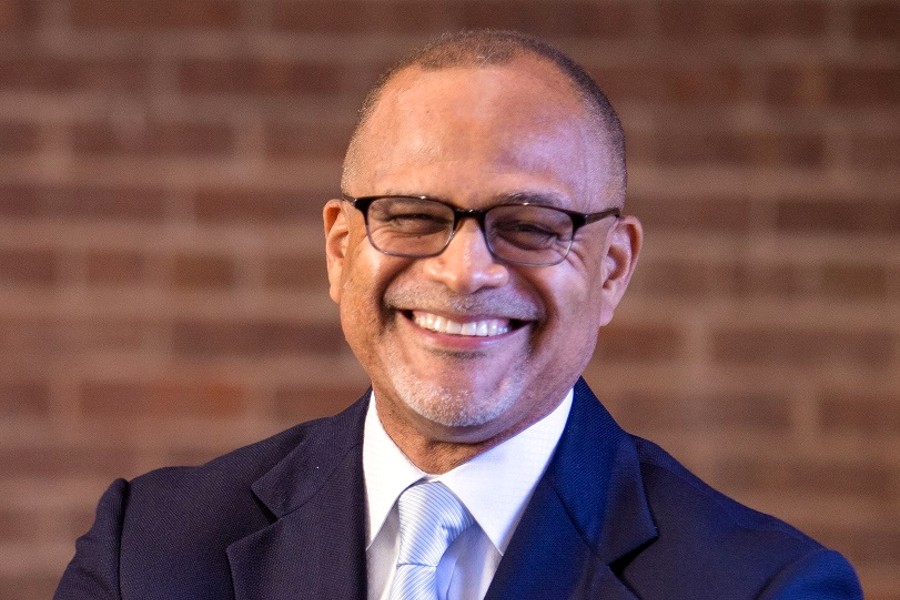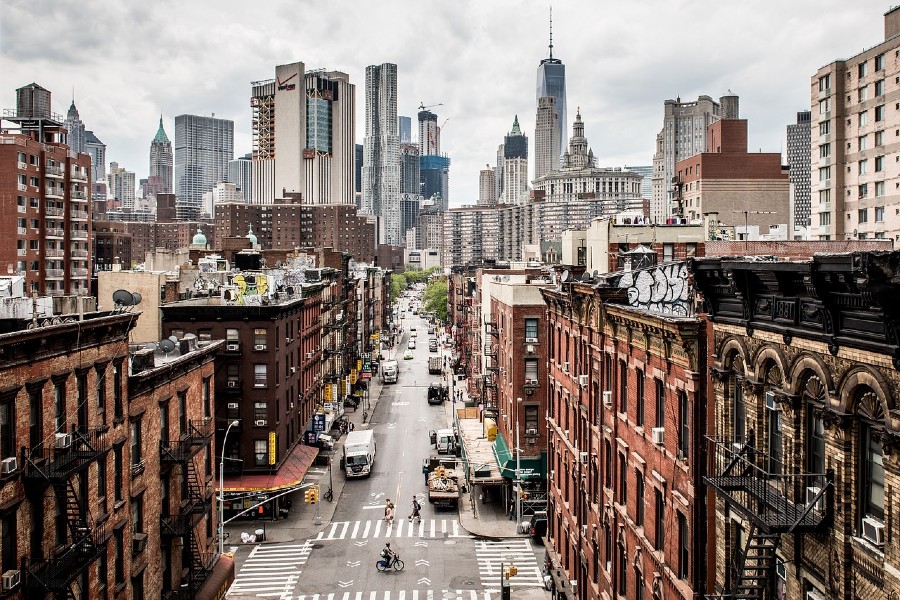 In Mayor Bill de Blasio’s “tale of two cities,” New York’s public housing projects clearly stood as a city of have-nots and a tale of woe.
In Mayor Bill de Blasio’s “tale of two cities,” New York’s public housing projects clearly stood as a city of have-nots and a tale of woe.
Last week, de Blasio demonstrated a long-held desire to improve the lot of the 420,000 residents living in the projects by earmarking $52.2 million in his preliminary 2015 budget to pay off what the New York City Housing Authority owes to the police department for “special police services.”
NYCHA has been paying for the additional policing for 20 years. The agency paid $75 million to the NYPD last year.
The mayor said that money would be better spent on repairs and maintenance of NYCHA properties.
“That money can be utilized to allow NYCHA to address crucial, crucial needs – most especially the huge repair backlog that many of us have spoken out on for years,” he said during his budget message.
In his previous role as the city’s public advocate, de Blasio filed a freedom of information request to force NYCHA to release data on the agency’s backlog of repair requests. He received records showing that nearly 370,000 work-order requests were outstanding.
“If a private landlord neglected tenants like this, the city would throw the book at them,” he said at the time.
The public advocate office used the data to assemble a “NYCHA Watchlist,” which showed that requests for repairs to air conditioners, building doors and smoke detectors went unanswered for months.
NYCHA responded to the negative publicity about its maintenance failures by launching a drive to reduce the backlog of repairs. And the agency announced last month that it had cut the backlog to about 100,000 requests for repairs – quite an accomplishment in that the agency says it receives about 50,000 requests a week.
However, a consultant’s report stated late last year that budget constraints allowed NYCHA to address only the repairs backlog and not the decay of many buildings in the projects. And one expense contributing to that constraint was the policing payment.
Community activists have long complained that the NYPD shouldn’t be billing NYCHA annually for additional police services.
“This payment to the city for police services that the city provides for free to private apartment buildings has always appeared misguided,” said David R. Jones, president of the Community Services Society, which first called for the end of NYCHA’s policing payments in 2006.
Had de Blasio not relieved NYCHA of its financial debt to the police department, two state legislators were poised to do so.
Sen. Daniel L. Squadron and Assemblyman Walter T. Mosley, two city Democrats, tucked a provision to end the housing agency’s NYPD payments into their proposed Retail Anti-Profiling Act. The bill aims to eradicate the “shop-and-frisk” tactics of off-duty police officers who work security for such department stores as Macy’s and Barneys. It is a response to widely reported incidents of black shoppers being stopped by security officers after purchasing expensive items at Manhattan stores.
Squadron said he has long urged the city to end the NYCHA payments and praised de Blasio’s efforts to do so.
“This agreement has locked NYCHA in perpetual financial crisis and essentially forced NYCHA residents to pay double for policing,” he said in a statement. “And now, I’m thrilled that Mayor de Blasio is taking action.”
Some criminologists warn that the projects could see a jump in crime should any action taken by the mayor or state lawmakers ultimately reduce the $410 million budget of the NYPD Housing Bureau, which polices the projects.
“When you have fewer police officers, the people who are engaged in criminal activity feel more empowered,” said Maria Haberfeld, chairwoman of the department of Law, Police Science and Criminal Justice Administration at the John Jay College of Criminal Justice.
The Housing Bureau employs nearly 2,000 officers, according to the NYPD budget. In addition to foot patrols, the bureau coordinates with tenants groups and runs several programs to reduce motor vehicle theft.
Data suggest that the city’s housing projects continue to be pockets of high crime. Murders increased 10 percent last year from 2012 and assaults increased 9 percent, according news reports. Fewer rapes were reported – 138 last year, compared to 165 in 2012 – but there were 21 percent more grand larceny complaints last year than in 2012.
In contrast, NYPD data show that murders citywide decreased 20 percent last year. Of the so-called seven major felonies — murder, rape, robbery, felony assault, burglary, grand larceny and grand larceny of a motor vehicle — only assaults have risen over the last decade citywide.
Isabella Lee, president of the Residential Association at the Walt Whitman Houses, a NYCHA complex in Fort Greene, supports the elimination of NYCHA payments to the NYPD – because she feels residents are paying for shoddy service.
“Sometimes residents call the police when they see something going on, and they don’t show up at all,” Lee said. “I feel that NYCHA should not be paying the police department an additional $75 million a year for doing nothing.”
NYCHA recently announced that it has completed the installation of nearly 4,000 CCTV cameras to enhance public safety in 500 buildings on its properties.
But technology does not provide the deterrent to crime that police officers do, experts say.
“If the argument is that CCTV cameras are a way to replace the safety that comes from manned officers, especially foot-patrol officers in public housing projects, that’s nonsense,” said Jerry Ratcliffe, the chair of the department of Criminal Justice at Temple University who has written about the effect of closed-circuit cameras on crime rates. “They are one solution that’s not very flexible, whereas police officers, if they’re managed well, can be extremely flexible.”
NYCHA and the police department did not respond to requests for interviews (source).
Related articles
Become a Harlem Insider!
By submitting this form, you are consenting to receive marketing emails from: Harlem World Magazine, 2521 1/2 west 42nd street, Los Angeles, CA, 90008, https://www.harlemworldmagazine.com. You can revoke your consent to receive emails at any time by using the SafeUnsubscribe® link, found at the bottom of every email. Emails are serviced by Constant Contact
























